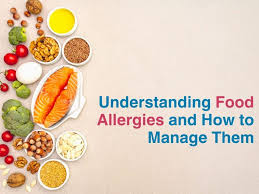According to the Food Allergy Research and Education Organization (FARE), approximately 15 million Americans suffer from food allergies, resulting in a variety of symptoms that range from mild inconvenience to life-threatening. Though there are no cures for food allergies, several methods and approaches have been established to aid in their treatments or even control symptoms to minimize the impact on people’s lives. In this blog, we will briefly explain what food allergies are and then go ahead to highlight five common causes of these allergic reactions as well as how individuals can cope with them.
What Are Food Allergies?
Food allergies happen when the immune system mistakenly identifies a protein in food as harmful and overreacts to it by producing antibodies called Immunoglobulin E (IgE). It can lead to a variety of symptoms, including hives and swelling, as well as more subtle reactions that cause gas or bloating; in worst-case scenarios, it could provoke anaphylaxis, which warrants immediate medical help. Food allergens are as follows:
Peanuts
Tree nuts
Milk
Eggs
Wheat
Soy
Fish
Shellfish
Recognizing Symptoms
Allergic symptoms may appear minutes to several hours after consumption of the incriminating food. Common signs include:
Skin manifestations (urticaria, or eczema)
Possible stats of respiration (baby experiences nasal congestion or having a hard time breathing)
NauseaVomitingDiarrhea
Severe anaphylaxis (swelling of the throat, fast pulse, fainting)
If you suspect a food allergy, it is important to see your healthcare provider for proper diagnosis and treatment.
Techniques for Coping with Food Allergy
There is no cure for food allergy testing, but some approaches to reduce allergy symptoms and the risk of allergic reactions include
Avoid Trigger FoodsThe most ideal approach to control food allergies is attempting to evade the allergens. The former is by reading food labels closely, asking about what kind of ingredients when dining outside or even at home, and restricting themselves to cross-contamination that could happen in the kitchen.
Education and AwarenessLearning as much you can about food allergies is important. Knowing symptoms to recognize, what steps to take in the case of a reaction, and being able to read food labels can empower those with allergies so they know more about how not only manage their environment but also survive it.
Emergency Action Plan
An emergency action plan for people with severe food allergies is key. This plan should include:
Identification of allergens
Allergic response signs
Specific steps to take if a reaction occurs include using medications (antihistamines, epinephrine auto-injectors, etc.)
Emergency contact information
Any person with a food allergy should have an epinephrine auto-injector available if there is a risk of anaphylaxis. For milder symptoms using a food allergy test can help, but likely will not replace emergency treatment in severe cases. Having a consistent healthcare provider will also make handling prescriptions and verifying an updated allergy status easier.
Oral Immunotherapy (OIT): An up-and-coming treatment, OIT involves the incremental introduction of small doses of allergenic food in a clinical setting. Prospective to develop independent tolerance for certain allergens over time But it is not appropriate for all people and should only be done with guidance from an allergist.
Support Groups and Counseling: Talking to other people who are going through the same thing can help you feel less alone, as well as provide tips about what has worked for others. Support groups, both in person and online, can also be good resources for those living with food allergies.
Dietary Consultation: Collaborating with a registered dietitian can assist an individual suffering from food allergies to make meal plans that do not include allergic or trigger ingredients yet remain nutritionally balanced. This is crucial, especially for children and those with multiple allergies.
Conclusion
Though living with food allergies makes life difficult for them, thanks to the careful handling of the issue and by creating awareness about it such patients can lead a fair life. At this time, there is no cure although avoidance and understanding the disease along with developing therapies such as oral immunotherapy (AIT), offer more promise towards better control. Knowledge is a powerful tool, and people with food allergies can rest assured that these tips will help them to navigate their diets safely. This is why it’s so important to meet with healthcare providers for customized advice and management strategies designed specifically around who we are.
